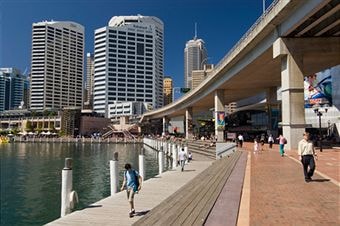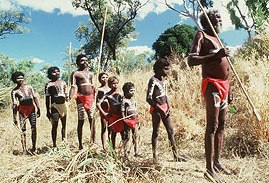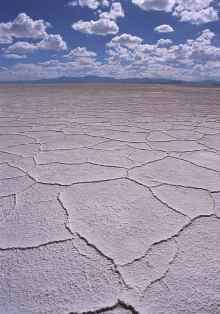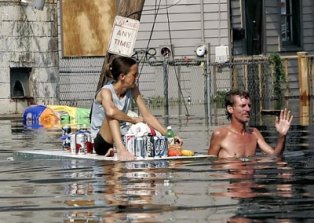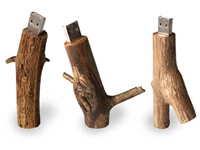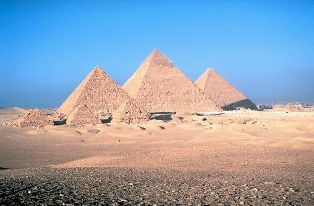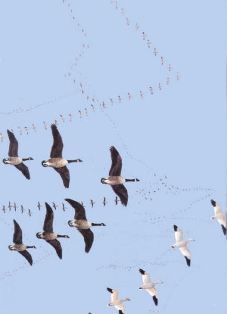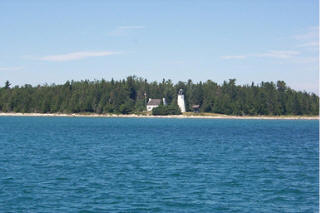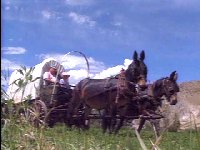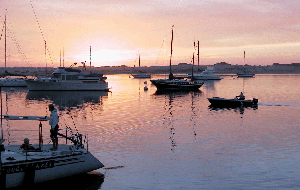استرالیا: مردم
Australia: People
The first people who lived in Australia were known as the Aborigines. The Aborigines came to Australia by boat more than 40,000 years ago. They are the first people in the world who are known to have used boats for transportation.
Even though many parts of Australia were very inhospitable places, the Aborigines survived. They lived by hunting and gathering throughout the continent, even in the desert areas where survival is almost impossible. The Aborigines felt a deep spiritual attachment to the land, and they made many beautiful paintings upon the rocks of many parts of the country. Their most famous invention is a curved hunting stick known as the “boomerang.” The design of the boomerang is remarkable, because it can be thrown in such a way that it will turn around and return to the person who threw it.
Until about two hundred years ago, the Aborigines had only a very limited amount of contact with people in the outside world. The next people to migrate to Australia were from the British Isles. Beginning in the late eighteenth century, Australia was used as a prison colony, where common criminals and political prisoners were sent from Britain. By the middle of the nineteenth century, many British people moved to Australia voluntarily to begin farms or to search for gold. By the late nineteenth century, Britain stopped sending its prisoners to Australia, but migration continued.
After the arrival of the British colonists, the Aboriginal population declined sharply. This was partly due to disease, partly due to cruel treatment by settlers, and partly due to the loss of their traditional way of life. Today, the Aboriginal population is growing again, and the Australian government has taken some steps to correct the injustices of the past.
The various parts of Australia were governed at first as separate colonies, but in 1901 they joined to form a single country. Australia continued to grow during the twentieth century, and after World War Two it attracted many immigrants from countries in Europe. During the past few decades, many people have moved to Australia from various parts of Asia and from other parts of the world.
Today, Australia consists of one territory (the Northern Territory) and six states (Western Australia, South Australia, Tasmania, Victoria, New South Wales, and Queensland). Tasmania is a small island off the southern coast, and Victoria, New South Wales, and Queensland are found in the eastern part of the country.
The two largest cities in Australia are Sydney and Melbourne, both of which are in the southeastern part of the country. Sydney has a beautiful harbor that is one of the largest in the world, and Melbourne has many beautiful parks and gardens. The capital city of the country is Canberra, which is located between Sydney and Melbourne. Other large cities in Australia are Brisbane (in the northeast), Perth (in the southwest), and Adelaide (in the south).
aborigine:
someone who belongs to the race of people who have lived in Australia from the earliest times
inhospitable:
an inhospitable place is difficult to live or stay in because the weather conditions are unpleasant or there is no shelter
an inhospitable climate He trekked across some of the most inhospitable terrain in the world.
survival:
the state of continuing to live or exist
Illegal hunting is threatening the survival of the species.
The doctors gave him a one-in-ten chance of survival .
A lot of small companies are having to fight for survival (=work hard in order to continue to exist) .
stick:
▶PART OF TREE◀
a long thin piece of wood from a tree, which is no longer attached to the tree
ᅳsee also branch, twig
They collected sticks to start the fire.
remarkable:
unusual or surprising and therefore deserving attention or praise
She has made remarkable progress.
a remarkable coincidence
remarkable feat/achievement/accomplishment
It’s a remarkable achievement for the company.
it is remarkable that
It is remarkable that women did not have the vote until that time.
remarkable for
His drawings are remarkable for their accuracy.
He’s a remarkable man .
migrate:
if people migrate, they go to live in another area or country, especially in order to find work
ᅳsee also emigrate
isle / aɪl / [countable]
a word for an island, used in poetry or in names of islands
the British Isles
voluntarily:
if you do something voluntarily, you do it willingly, without anyone telling you to do it
She wasn’t fired – she left voluntarily
decline:
▶DECREASE◀
[intransitive] to decrease in quantity or importance
Spending on information technology has declined. Car sales have declined by a quarter. After the war, the city declined in importance.
settler:
someone who goes to live in a country or area where not many people like them have lived before, and that is a long way from any towns or cities
early settlers in Australia
Many of the earliest settlers here dies from disease and hunger.
Settlers found a plentiful supply of fruit and game in the nearby forests.
injustice:
a situation in which people are treated very unfairly and not given their rights
injustice of
the injustice of slavery
injustice against
innumerable injustices against the black population
The movie deals with injustices suffered by Native Americans.
He had developed a deep sense of social injustice .
harbor:
an area of water next to the land where the water is calm, so that ships are safe when they are inside it
as they sailed into Portsmouth Harbour
فهرست درس های سطح 3
این متن در تاریخ 27 دی 1398 توسط مشاور سلام زبان ویرایش شد.
